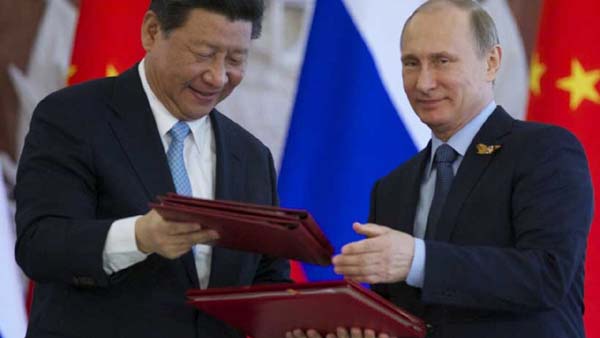
Solid basis for enhancement of China-Russia ties
Wang Xiaoquan
Soon, the 2022 Beijing Olympic Winter Games will kick off. It was announced on January 14 that Russian President Vladimir Putin is to attend the opening ceremony and hold a meeting on February 4 with Chinese President Xi Jinping.
In the past decades, China-Russia relations have been developing rapidly. Now they have been upgraded to a comprehensive strategic partnership of coordination for a new era. The relationship between Russia and China is currently at its best in history, and has become an example of the new model for major-country relations.
Based on historical experience and lessons, the consensus of pushing China-Russia relations forward was reached between the leaders of the two countries. It conforms to both the fundamental interests of the two countries and the trend of history. Overall, there is a solid foundation for the enhancement of China-Russia relations.
First, China and Russia are in a similar strategic position, which leads to the similarity of strategic interests between the two countries.
As emerging powers, both countries firmly advocate the establishment of a new, fairer international order that can reflect the interests of emerging countries.
As non-Western powers, both countries urgently need to explore development paths that are in line with their own conditions. They share the same interests and need to act together on issues such as maintaining the diversity of civilizations in the world.
As targets of the US’ ruthless containment policy, both should support each other in resisting Washington’s attempts to isolate, smear and even confront them.
And, as permanent members of the UN Security Council, both share strategic interests and historical responsibilities in promoting multilateral and global governance.
Second, China and Russia share similar diplomatic philosophies.
In terms of bilateral relations, China and Russia adhere to some shared rules, including mutual respect, good-neighborliness, mutually beneficial cooperation, and, common development. They neither divide countries into groups by ideology nor interfere in each other’s internal affairs. They don’t try to form an alliance, engage in confrontation, or target other countries.
On the other hand, Beijing and Moscow aim for the same type of international strategic cooperation. Respecting the norms of international law, both sides strive for maintaining strategic balance and stability in the world. China and Russia safeguard the interests of developing countries while promoting balanced, sustainable development and multi-polarity in the world. They support organizations and multilateral cooperation mechanisms, including the UN, G20, BRICS, and the Shanghai Cooperation Organization.
Third, the strategic advantages of China and Russia are complementary.
On the level of geo-strategy, both countries need support from each other to deal with security threats from the sea against China, and from NATO against Russia. In addition, China’s economy and Russia’s military strength are the greatest advantages in their comprehensive national power, respectively.
Therefore, Beijing and Moscow can handle pressure from any hegemonic alliance if the two powers cooperate in the use of comprehensive national power. Also, since China is good at investing in foreign countries, while Russia is rich in natural resources, economic cooperation in this aspect will be beneficial to both sides.
To sum it up, Beijing and Moscow can take advantage of each other’s strengths to facilitate greater development.
Finally, China and Russia have established a well-developed system of cooperation mechanism, which includes meetings between the heads of two states, deputy prime ministers, committees of government departments, parliaments, and political parties. The pragmatic and efficient mechanisms have enhanced strategic mutual trust and deepened mutually beneficial cooperation between the two sides. The extension of the Treaty of Good-Neighborliness and Friendly Cooperation between China and Russia will also guarantee that China-Russia relations will develop in the right direction.
The China-Russia years of sports exchange will last from 2022 to 2023. As President Putin is coming to Beijing, he will receive high courtesy from the Chinese leadership and people.
As global sporting powers, China and Russia take practical actions to promote sportsmanship and oppose the politicization of sports.
The two nations will take the upcoming meeting between Xi and Putin in Beijing as a new starting point to overcome difficulties and obstacles and create a better tomorrow for both countries.
The writer is a research fellow at the Institute of East European, Russian and Central Asian Studies, Chinese Academy of Social Sciences.
